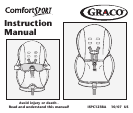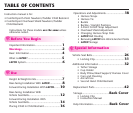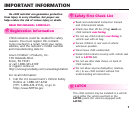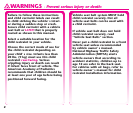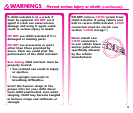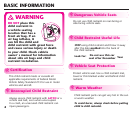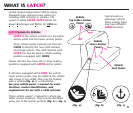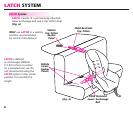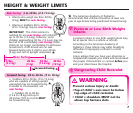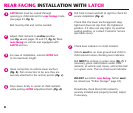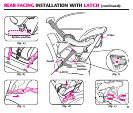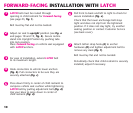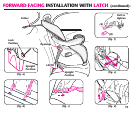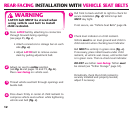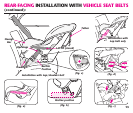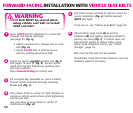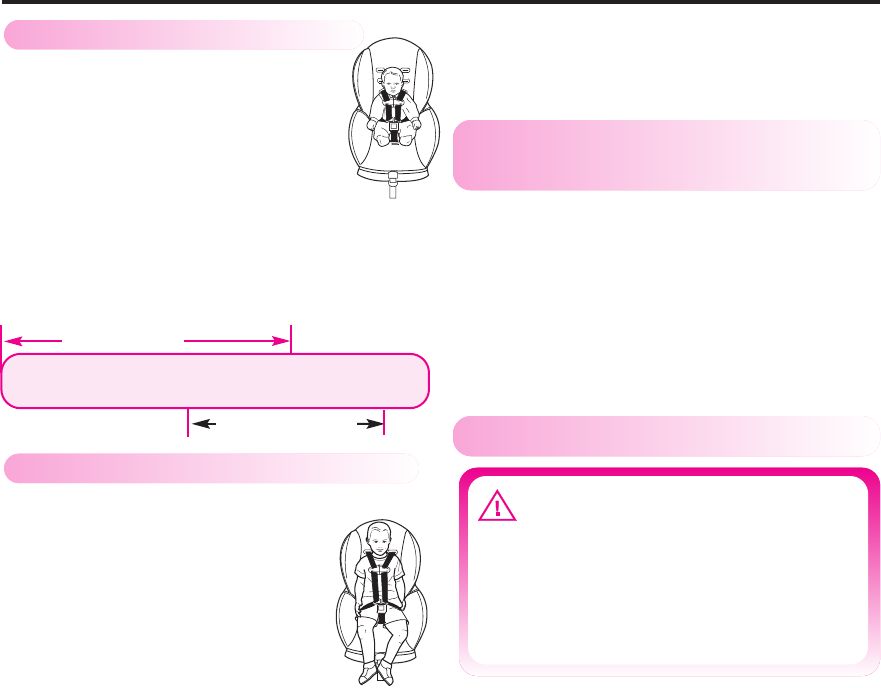
HEIGHT & WEIGHT LIMITS
A preterm infant or low birth weight infant may
be at special risk in a vehicle or aircraft.
According to the American Academy of
Pediatrics, these infants may suffer breathing
difficulties if improperly reclined in a child
restraint.
Graco advises that you have your physician or
hospital staff evaluate your infant and recommend
the proper child restraint or car bed before you
and your infant leave the hospital.
7
❃
Preterm or Low Birth Weight
Infants
❃
Outgrowing Child Restraint
Prevent serious injury or death:
• Top of child’ s ears must be below
top edge of child restraint.
• Child’ s shoulders MUST not be
above top harness slots.
WARNING
Rear-facing: 5 to 30 lbs. (2.2-13.6 kg)
• Infants who weigh less than 20 lbs.
(9 kg) MUST be rear-facing.
• Infants or toddlers 20 to 30 lbs.
(9 to 13.6 kg) may be rear-facing.
Forward-facing: 20 to 40 lbs. (9 to 18 kg)
• Toddlers 20 to 30 lbs. (9 to 13.6 kg)
who are capable of sitting upright
unassisted may be forward-facing
*
.
If unable to sit unassisted, use
rear-facing.
• Toddlers 30 to 40 lbs.
(13.6 to 18 kg) and up to
40 inches (101.6 cm) tall MUST
be forward-facing.
IMPORTANT: This child restraint is
certified for use rear-facing with children
up to 30 lbs. (13.6 kg). However, some
children approaching 30 lbs. (13.6 kg) may be
too tall to fit comfortably rear-facing. When
child can no longer comfortably fit and knees
remain bent, child should use car seat
forward-facing only if child is over 20 lbs.
(9 kg) and can sit upright unassisted.
*
*
The American Academy of Pediatrics
recommends that children should be at least one
year of age before being positioned forward facing.
Forward-facing
Rear-facing
40 lbs.
(18 kg)
5 lbs.
(2.2 kg)
30 lbs.
(13.6 kg)
20 lbs.
(9 kg)



